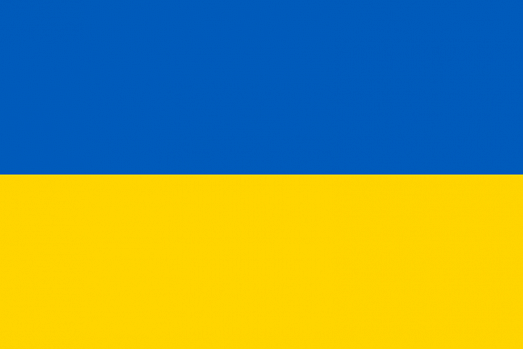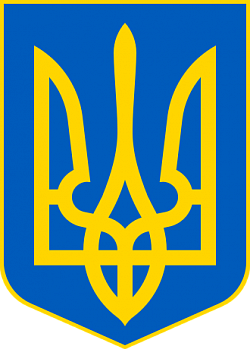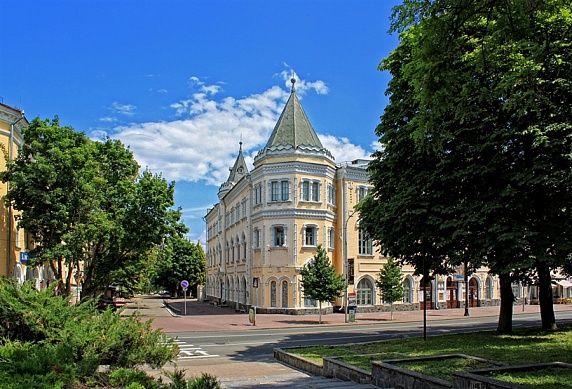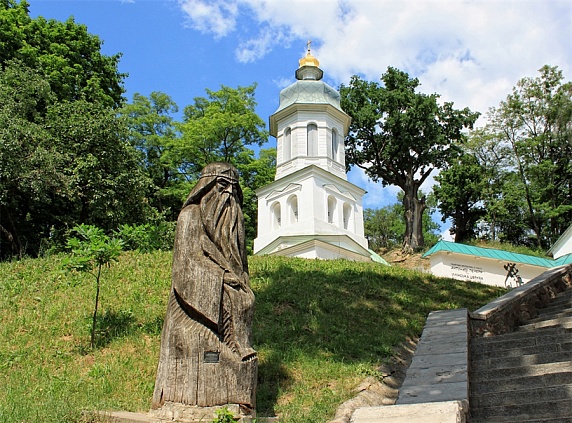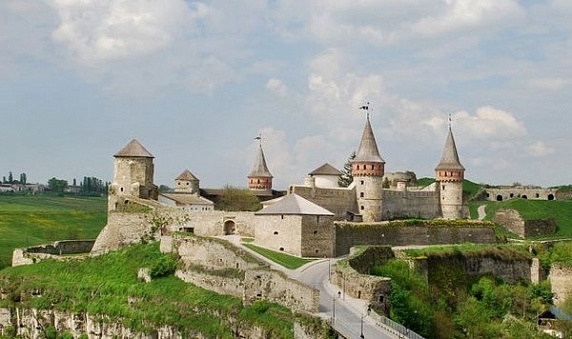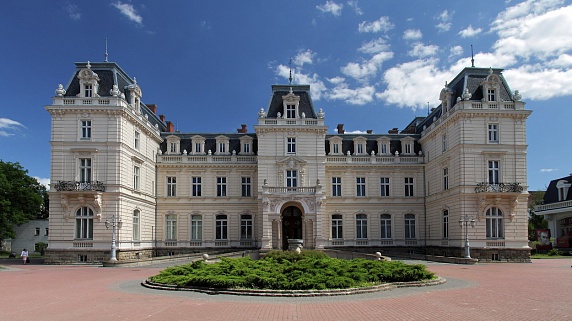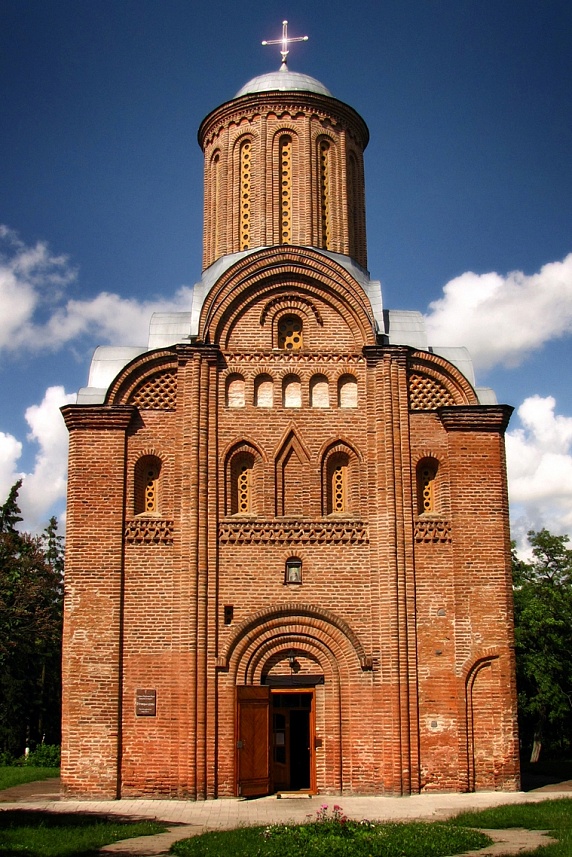 Ukraine
Ukraine
Foreign Minister Sergey Lavrov’s statement and answers to media questions during a joint news conference following talks with Foreign Minister of the Sultanate of Oman Badr Albusaidi, Oman, May 11, 2022
Ladies and gentlemen,
I woud like to begin by expressing my heartfelt gratitude to our Omani colleagues and friends for the warm welcome. We had a busy day today in our meetings with His Majesty Sultan Haitham bin Tariq Al Said and Deputy Prime Minister for the Council of Ministers of Oman Fahd bin Mahmoud Al Said, as well as talks with my colleague and friend Foreign Minister of Oman Badr bin Hamad Albusaidi.
We discussed the entire range of Russian-Omani relations and expressed satisfaction with the intensive political dialogue and cooperation in trade, the economy, culture and education.
We both agreed that trade between our countries is quite modest and below the existing potential. We discussed the possible efforts that can promote the development of joint, mutually beneficial projects in energy, tourism, transport, telecommunications, and other areas.
We agreed to strongly encourage the activities of the Russian-Omani Business Council, which met in January 2022 recently. We will work to improve the legal framework, including completing our work on an agreement to introduce visa-free travel for our citizens. We will continue to implement joint projects in culture, scientific research and education drawing on the rich and much-sought-after experience of cooperation between the
We have close or overlapping approaches to most regional and international matters. We appreciate the Sultanate's balanced and objective position on regional situations like the Syrian settlement. I am confident that
We noted
We are on the same page in our understanding that we must do everything we can to resume direct Palestinian-Israeli talks and to find ways to finally resolve this drawn-out conflict based on available internationally accepted legal solutions.
We appreciate the role of
We gave our Omani partners an in-depth update on the developments in
We let our colleagues know about the numerous fabrications by
We hope and expect that the completion of our military operation to achieve these goals will help stop the West’s attempts to undermine international law, ignore and grossly violate the principles of the UN Charter, including the principle of sovereign equality of states, and will make the West stop promoting the idea of a “unipolar world” dominated by the United States and its allies.
The cultural, religious and civilisational diversity of the modern world must be respected. The era of colonialism is over. This must be acknowledged.
In closing, we reaffirmed the commitment of the
Question (translated from Arabic): I would like to hear more details on your meeting with the Sultan. Do you see any desire on the part of the UN to settle the crisis in
Sergey Lavrov: I listed the subjects we discussed today at the meeting with the Sultan, the deputy prime minister and the minister of foreign affairs of the Sultanate of Oman. These were primarily issues related to our bilateral relations and further development in trade, cultural, and humanitarian ties and tourism, as well as the international subjects we already spoke about in detail.
Now to the role of the United Nations. Secretary-General Antonio Guterres visited
We continue to open humanitarian corridors. People continue to pass through them. We are interested in all civilians leaving these zones.
Considering Antonio Guterres’ interest, we suggested he call the
Representatives of the UN Secretariat are on the ground now trying to help resolve the issues we have raised.
Regarding the wider (than simply humanitarian) role that the UN could have played, unfortunately, the Secretariat, including the Secretary-General, missed the opportunity to achieve a political settlement when for seven long years they did not react in any way to the Kiev regime’s open and clear sabotage of Security Council Resolution 2202, which approved the Minsk agreements on settling the conflict in eastern Ukraine.
If, after this resolution was approved unanimously by the Security Council in February 2015, the Secretariat tried to urge the Ukrainian authorities to fulfill the obligations envisaged in this document, then we might not have had these problems, which were eventually created by
Question (in English): There has been a key fallout of the conflict for Oman and the GCC countries as well, regarding the disruption of food supplies like greens and coconut oil and other foodstuffs. Have you come with any assurances that risks to food supplies will be minimised in light of the conflict?
Sergey Lavrov: I am not the right person to ask to respond. Our actions did not and cannot influence the problems you mentioned. They were created exclusively by bans and illegal sanctions imposed by Western countries. These bans destroyed in a day long-term, convenient, comfortable transport and logistics chains. The Western position has obstructed their capabilities. We believe this is an absolutely aggressive policy as regards the global economy and trade between all countries.
In his recently released report on food and energy security, the UN Secretary-General did not mention the enormous negative impact of Western sanctions on the situation. It is wrong for this universal international organisation to ignore the objective state of affairs and avoid providing an honest comprehensive analysis.
Here’s one specific aspect of this whole story: the Kiev authorities do not let dozens of vessels leave their ports, including those that deliver wheat to various parts of the world. They have even closed their ports by mining the exit ways, making it impossible for these vessels to leave.
We repeatedly offered to organise humanitarian corridors for the exit of vessels with needed goods but Ukrainian representatives are refusing to cooperate. Their Western bosses completely ignore this situation.
Question (translated from Arabic): During your visit to Algeria, you said your country is doing all it can to put an end to the unipolar world. What is the strategy for reaching this goal? Don’t you see a risk of a large-scale armed conflict in Europe on the way towards this goal?
Sergey Lavrov: The strategy is simple: to fulfil the commitments under the UN Charter, including respect for the sovereign equality of states, forget colonial ways, renounce neo-colonial ambitions and faithfully abide by international obligations. This is the bottom line.
Our goals in Ukraine are abundantly clear: not to permit violations of the rights of the Russian and Russian-speaking population in Donbass, which was threatened with extinction by the Kiev regime, and to prevent the West from building in Ukraine a bridgehead posing a military threat to the Russian Federation.
If you are concerned by the prospect of war in Europe, I will tell you that we don’t want it at all. But I would like to draw your attention to the fact that the West is constantly announcing that Russia needs to be defeated in this situation. Judge for yourself.
Question: What is Moscow’s attitude to the position of the Sultanate of Oman on regional and international issues, in part, the Syrian settlement? What do you think about Oman’s position on the Ukrainian crisis?
Sergey Lavrov: I have already given an account of our talks on regional affairs in my opening remarks.
We appreciate the Sultanate’s well-balanced and responsible position on the Syrian settlement process, issues related to conditions for inclusive talks between all Yemeni forces, security issues in the Gulf as well as between the Arab countries and the Islamic Republic of Iran. Our assessment is consistent and well known.
As for Oman’s position on the crisis in Ukraine, we believe it is well balanced and reflects the rational interests of its people. This approach is shared by all other countries of the region. It is upheld by the decisions of the Gulf Cooperation Council and the Arab League.
Question (in English): What actions is the Russian Government taking to recover from Western sanctions and to what extent can Moscow afford such sanctions, especially if the US and EU enforce a ban on the Russian energy sector?
Sergey Lavrov: We are entirely clear on how to proceed. The main conclusion is not to rely in our plans on the West as a negotiating partner. It has proved that for the sake of its hegemony (this is, of course, an illusory goal) it is ready to violate its own principles and resort to outright theft and robbery. The sanctity of private property and the presumption of innocence – all those values that Western civilisation touted as the fundamental principles of its countries – have been upended and crudely violated.
We have already made our conclusions. We will rely only on ourselves and our trustworthy partners, the overwhelming majority of which are not part of the former “golden billion.”
We have enough buyers of our energy resources. We will work with them. Let the West pay much more than it paid to the Russian Federation and let them explain to their own people why they have to be made poorer.
Question (translated from Arabic): As mentioned, the figures on trade do not reflect the potential of both states. Are you planning any investment or other kinds of projects?
Sergey Lavrov: In my opening remarks, I set forth the areas that we consider promising for building up our economic cooperation: energy, telecommunications, transport and logistics. We have the Business Council and we must make the most of the opportunities it offers. And that is what we will do.
